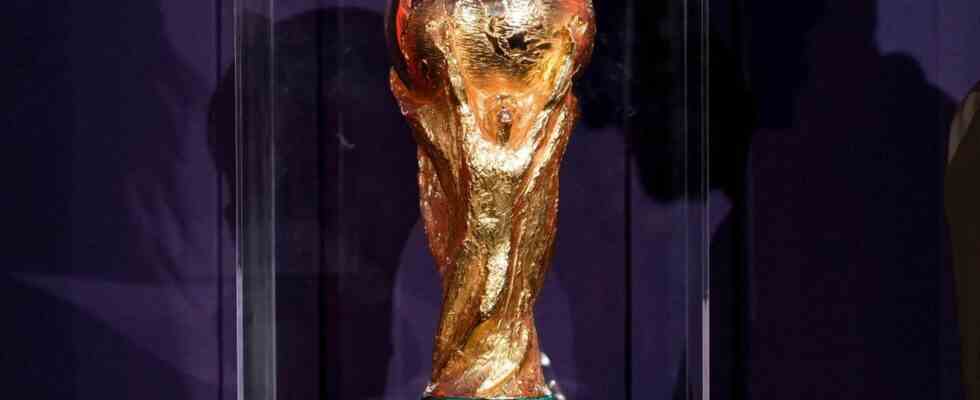Oracle of the Soccer World Cup
Oxford mathematician predicts World Cup winners – and the outcome of the DFB team
Who will win the 2022 FIFA World Cup Qatar trophy? An Oxford mathematician already wants to know this.
© Picture Alliance
The 2022 World Cup in Qatar has begun. A mathematician from Oxford has made a prediction about the course of the tournament. Which World Cup winner is the most likely result and how far will the DFB team go?
Who will win the 2022 World Cup? Will “my” team win the tournament and if not how far will they get? These are the questions many football fans around the world ask themselves. Oxford University mathematician Joshua Bull developed the Oxford Mathematics 2022 World Cup Predictor and wants answers to the questions.
He analyzed the game data from past tournaments and looked at, among other things, how close a team is to the opposing goal and how often they have scored in the past. Bull also considered information about the now 32 participating teams and players. Finally, an algorithm simulated the group stage matches a million times and took the most common results. He then simulated every KO game 100,000 times, which should result in various forecasts for the outcome of the World Cup in Qatar.
For England’s first game against Iran on Monday, a 1-0 win is the most likely outcome. England will make it to the quarterfinals. The mathematician predicts a less successful tournament for Germany. The DFB team should lose against Belgium in the round of 16 and thus be eliminated from the tournament.
In the semifinals there will be a duel between Argentina and Brazil, which Brazil will decide for itself. Brazil won 14 percent of the simulations overall. It is therefore most likely that Brazil will also win the World Cup after beating Belgium in the final. The probability of a win is therefore 61.3 percent.
After Bull won the 2020 British fantasy football competition with over eight million participants two years ago, he now wants to make predictions for various matches at this year’s World Cup and publish his results on social media.
No guarantee of success for World Cup prognosis
Even if the predictions are mathematically the most likely, this in no way means that they will actually occur. It “is still statistically very unlikely to be exactly the case – it’s just more likely than other alternative scenarios,” the mathematician clarifies.
There are many predictions about sporting events – we also remember animals, such as the octopus Paul from Oberhausen. At the 2010 World Cup in South Africa, he correctly predicted the seven games with German participation and the final. At the World Cup in 2018, a dachshund, a snow leopard and a goat, among others, were supposed to predict the games. Last year, the lady elephant Yashoda from Hamburg was supposed to predict the results of the European Championship.
Controversial event
Criticism of the Qatar World Cup: This is how the world looks at the tournament in the emirate
Sources: Oxford Mail, t-onlinewith material from the DPA

